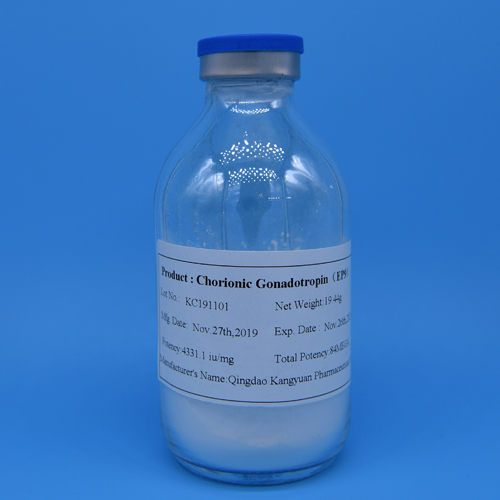hormone, is a protein hormone produced by the placenta during pregnancy. It
plays a vital role in maintaining a healthy pregnancy and has various medical
uses beyond its association with pregnancy. In this article, we will explore the
functions, uses, and benefits of HCG.
Pregnancy Support: During pregnancy, HCG is produced by the placenta and
helps to maintain the corpus luteum, a temporary hormone-secreting structure
formed in the ovary after ovulation. The corpus luteum produces progesterone,
which is vital for maintaining the uterine lining and supporting the growth of
the fetus. HCG ensures the proper functioning of the corpus luteum, thereby
ensuring a healthy pregnancy.

Diagnostic Tool: HCG is widely used as a diagnostic tool to detect and
confirm pregnancy. Its presence in urine or blood indicates pregnancy, as it is
produced only during pregnancy. Home pregnancy tests often rely on detecting HCG
levels in urine to provide a positive or negative result.
Fertility Treatment: HCG is used in various fertility treatments, such as
in vitro fertilization (IVF) and intrauterine insemination (IUI). In IVF, HCG is
administered to stimulate the final maturation and release of eggs from the
ovaries. In IUI, HCG is used to trigger ovulation, improving the chances of
successful insemination.
Weight Loss: HCG has gained popularity as a weight loss aid, although its
effectiveness for this purpose is debated. HCG is used in conjunction with a
low-calorie diet in a weight loss protocol known as the HCG diet. It is believed
to help suppress appetite and promote fat metabolism. However, more research is
needed to fully understand its effectiveness and safety in weight loss
programs.
Hormone Replacement Therapy: HCG can also be used in hormone replacement
therapy for various conditions, including testosterone deficiency in men. In
such cases, HCG is administered to stimulate the production of testosterone and
maintain optimal hormonal balance.
Preservation of Testicular Function: HCG has been found to prevent
testicular atrophy during testosterone supplementation in men. It helps maintain
testicular size, sperm production, and fertility while receiving testosterone
replacement therapy. This makes it a crucial component in the management of
testosterone deficiency.
Treatment of Cryptorchidism: Cryptorchidism is a condition where the
testicles fail to descend into the scrotum. HCG treatment has shown promising
results in stimulating testicular descent and preventing complications
associated with cryptorchidism. It is often used as an alternative to surgical
intervention in young boys.
Support for Hormonal Balance: HCG has shown potential in assisting
individuals with hormonal imbalances, such as polycystic ovary syndrome (PCOS).
By regulating hormone levels, HCG may help restore menstrual regularity and
improve fertility in women with PCOS.
In conclusion, HCG is a crucial hormone involved in pregnancy maintenance
and has diverse medical uses. From pregnancy detection to fertility treatments,
weight loss aid, hormone replacement therapy, and more, HCG plays a valuable
role in various medical fields. However, it is essential to consult with
healthcare professionals to ensure proper administration and supervision when
using HCG for any purpose.